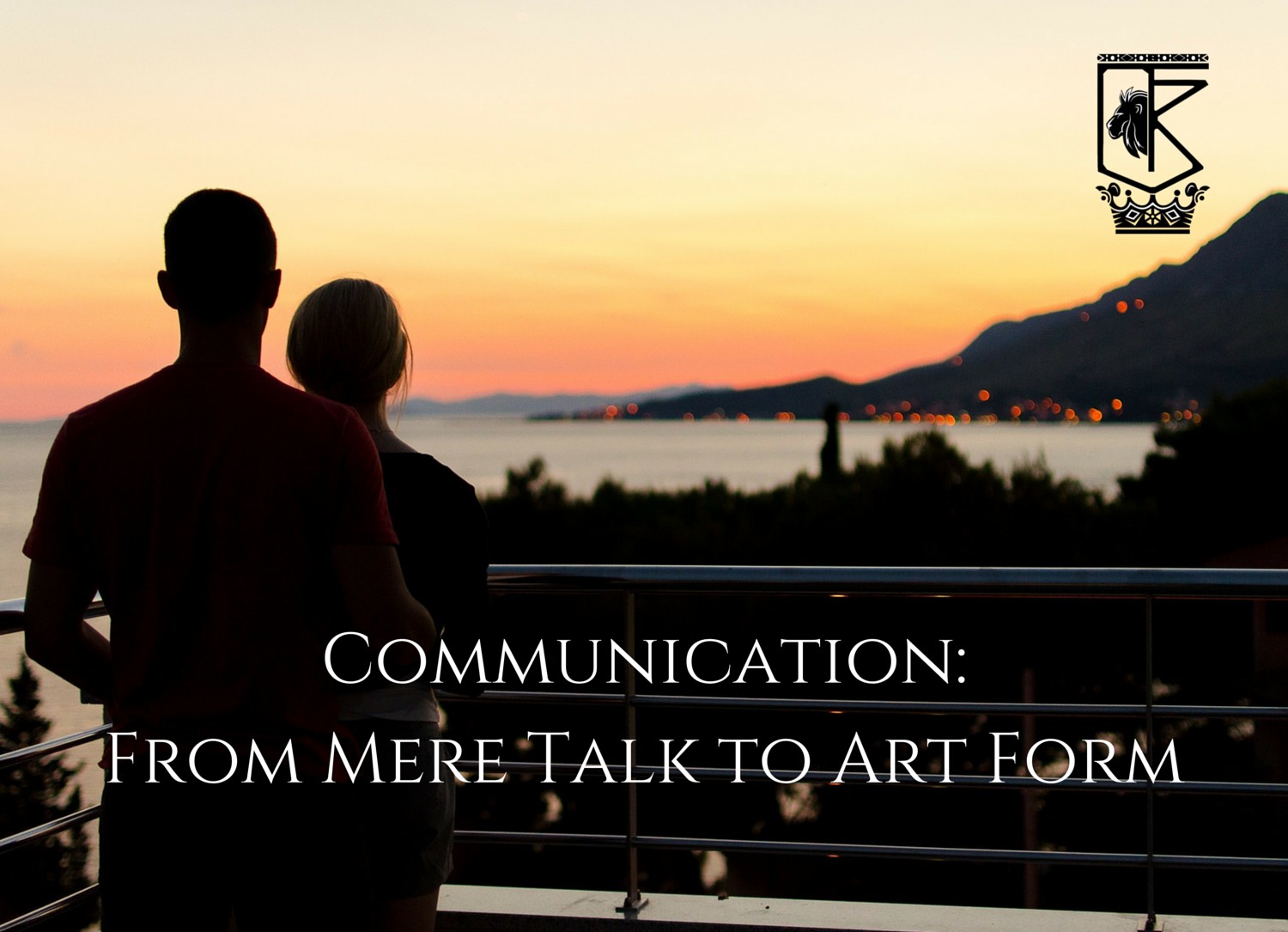When was the last time you had a quality, deep, mind-penetrating conversation? The kind that you and everyone else involved departed from with a sense of wonder and forethought; you actually wanted to learn more about what you talked about. Either you were heated to a point you wanted to find out how to defend your position better (a debate) or you felt elation for the experience of matching mental frequencies with someone; finally someone is on the same page with you. There is a lot more going on when we have meetings of the minds like this and it goes beyond choosing topics that all parties enjoy. Actually, you don’t even have to like the topics to have a meeting of the minds. And for those who elect to make conversation an art, you’ll quickly realize the power of influence having your art’s potential maximized can generate.
There are thousands of articles out there that cover the elements of communication and I’d like to touch upon just one principle that’s often ignored:
***We live in the same world but different paradigms***
In this regard, the “world” is this planet. We see the same trees, sun, buildings and other people walking around. We’re subject to the earth’s gravity and the winds and rain. We can share food and talk about stories and share insights; we see each other. Even though we have this commonality, we still exist in different paradigms.
What’s a paradigm?
According to my friend Webster, a paradigm is “a philosophical and theoretical framework of a scientific school or discipline within which theories, laws, and generalizations and the experiments performed in support of them are formulated; broadly : a philosophical or theoretical framework of any kind.” Webster also provides the simpler definition: a theory or a group of ideas about how something should be done, made, or thought about.
This means, we could be sitting down on the same park bench with someone, looking out into the environment and see the same things while PERCEIVING them differently. Based on our beliefs, assumptions, ambitions, attitudes, who pissed us off that day, our love frequency and general worldview, our inner existence is very different from the next person. Some of us also experience the world differently from a sensory perspective: synesthesia. We sabotage our chances to connect when we assume everyone’s inner world is exactly like ours.
Typical communication training will simply instruct you to be cordial, shake hands, smile plenty and avoid discussing politics and religion (I disagree with this, as a mind that’s truly a learner will be open to talk about a variety of subjects without having to agree). But typical communication training can be more effective if this etiquette also incorporates practice in:
Being aware that our perception is different. Not much more to do at this point. The simple acknowledgement that we don’t experience the world the same will make the next point easier to initiate.
Discovering more about the other person’s paradigm. This means we get off the Me-Train and exert ourselves towards understanding the person we’re communicating with. Does she have a book? What’s the title? How’s her energy; does she appear tired or enthusiastic? What moves her, the passion? What does she think of XYZ? Why is XYZ important to her? What are her boundaries? Any topics she has a strong dislike for? What are her dreams? What’s this city/town like for her?
Communicating with the other person based on the paradigm SHE possesses, not ours. Whether we’re making an informative, persuasive or creative speech / conversation, our magnificent ideas will mean nothing if we fail to send the message to the other person’s mind in a way she’s open to receiving. Remember: we already understand our own ideas. The point of communicating is to transfer our ideas to someone else. And if we do not know what her paradigm is (her communication style, temperament, her philosophy on life and the world, even her pattern of word choice, body language, etc.), we face difficulty in making that deep, long-lasting connection people tend to call rapport.
If you observe, the most charismatic communicators recognize the conversation is never about them. It’s about you, with all of the attention harnessed upon what makes you comfortable. You barely know anything about the person except that speaking with her made you feel so much more empowered. This is a true art of the human condition that few attain because we’re so enamored by our own perspectives we actually believe talking with someone is only supposed to be about what we want to say. My sense is this is a prime factor with how ego-driven we’ve become (reference: selfie) and the low-level communication skills we see exhibited in professional, platonic and romantic scenes today.
The marvelous karma that results from top-notch communication, when the art is done well, is the other person’s receptivity naturally brings her to a state where she wants to know more about your paradigm. No need to force your view, it will be asked of you in an organic way. You then gain that idealistic meeting of the minds.






